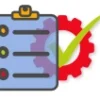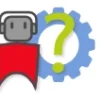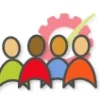The World of Work in the 21st Century
On this page:
How has the workplace changed and how does that make things change for you?
Employment has changed tremendously over the past half century, which in turn will have a major effect on career planning and management. It’s important to keep up to date with how the world of work is changing and evolving and these are some of the very general things I found out. Obviously, it will be important to look at your own local, regional and national LMI, as this isn’t and is not intended to be LMI, but I hope this is helpful. A short summary:
- A lot of organisations are less hierarchical and have a flatter organisational structure
- Qualifications are still important but employers are looking for skills, especially transferrable skills, flexibility and ‘how you can help them’
- Increased automatisation linked to increased need for higher end skills – use of Artificial Intelligence – and related abilities (e.g. Maths)
- Increased flexibility required – gig economy, zero-hour contracts, free-lancing in name
- Increased possibility of frequent periods of redundancy and increasing retirement age
- The gender pay gap still remains but there is more awareness, hopefully leading to change in this respect.
- Further increase in the service industry in western economies at the cost of manufacturing – larger scale production often takes place in lower cost countries.
- In addition, a slight decline in farming, mining etc…
- Increased pace of change in the economy and consequently the job market (AI – careers linked to ecology – technological careers)
- Increased requirement of ‘soft skills’, even in jobs not traditionally associated with these
- Increased opportunities for building your own bespoke career path (subject to opportunities), rather than following a set career path
- An increased number of jobs will be more fulfilling as a result of the point above, while at the same time people will suffer increased stress
- Increased competition for jobs – a university degree doesn’t guarantee a job!
- Increasing globalisation, whether we like it or not, with its many implications, some of which are outlined above
- Increased importance of working relationships and networking and in many cases a decreased use of traditional recruitment techniques by companies
- Increased outsourcing of different tasks within companies
- Depending on the industry, self-management of jobs by employees – employees working more in the same style as self-employed people
Artificial Intelligence (AI) and the job market…
AI is making massive strides at the moment and it’s very hard to predict what impact this exactly is going to have on work and careers in the future… and even from now on…!!
The government has commissioned a report on this in 2023, but even that is possibly out of date by now (in 2025) as AI is changing so rapidly.
Generally speaking, and I have to be careful with this as I may be wrong because of the ongoing changes AI is generating within society:
- Whether you like it or not, AI is here to stay and it is going to influence society, life and careers… guaranteed. This means that we need to adapt in our plans, ideas, and life, to make it fit within. We can’t avoid it… flexibility, which was already part of the career landscape, is even more important and key now.
- It’s very hard to envisage how AI will impact our ideas, plans and career wishes, even now, but especially in 10 or 15 years time. Already, some jobs which are very ‘person based’ instead of technology based, are influenced by AI. This means that we need to (re-)imagine what skills will be needed in the future and how we can or will fit in with this.
- Some jobs will disappear… there’s no avoiding this. As with other technological changes in the past, some jobs disappear and others are created on the back of the new technology. Which will disappear is hard to say, with AI in full development. So adaptability is key here too.
- A lot of jobs will change because of AI, if not all jobs. We’ll still need people doing ‘hands on’ work, but even that will change as AI can plan, organise and change how this work is done. AI, together with ‘automation’, if that’s still a word, can for instance change how diagnostics are performed, automating this and making it work ‘at a distance’, which is already very much happening.
- We can’t avoid using AI ourselves, whether we want to or not, whether we realise or not… So embracing AI will make a real difference. Apart from all the ethical and environmental issues surrounding AI, it’s impossible to put Pandora back in the box, and most people wouldn’t want to. Exploring the different kinds of AI and how they can work for us will be, and already is, key. Even in very ‘person based’ careers such as counselling and psychotherapy, AI is already having an impact. Using AI wisely and intelligently is key in assuring quality in our work and in ensuring we add value to the world of work, society, our careers and our lives.
This is just a short summary of very generaly thoughts I have about AI and the impact on the world of work. I’m sure you have your own… but what’s come out of this for me is that to incorporate the impact of AI on our careers, there are a couple of important key words to keep in mind: flexibility, adaptability, accepting, and embracing (wisely and intelligently).
If you would like to read up on this in more detail, the following links may be helpful (if this isn’t enough, you can always ask Chat GPT to come up with a good summary!):
Changes in the world of work – then and now
All of these changes have consequences for building a career. Generally, this means there is a trend from lifelong planning to lifelong learning and change with short term, step by step planning. As a consequence, careers look very different now than they did in the 20th century. Apart from those having their own business or those who are entrepreneurs, the way employment is structured has completely changed as well.
Traditionally, employment and careers was very much a gendered affair. For most men and quite a few women, very often looked like this:

Traditionally and in very general terms, women had even less choice and were often expected to stay at home once they married or at the very least once they had a baby:

21st Century: the Gig Economy
Fragmentation with more freedom, but also a lot more risk… more responsibility on the individual to make it work.
In the 21st century, this has very much changed for most people. Some people, and in some careers, a career path (as opposed to a job) for life still exists. Often these are careers where a lot is invested in developing high level skills in one direction. An example is medicine.
For a lot of other people, a fixed, life long career is only an illusion, albeit one that is still pervasive in society and the expectations of many parents and young people.
How often are teenagers asked what they want to do when they leave school, or children what they want to be when they are older. Even young adults are often prompted to find their one passion in life and turn this into a lifelong career.
The reality is that many, if not most, of us make short term decisions that then develop lifelong in a career path that meanders, changes in different directions or splits into different parts.
A lot of people in their 40s, if you ask them whether they are doing what they wanted or trained for when in school, will say no.
Other people will have set out in a path they trained for but then developed into something else through their own revised planning, additional training, opportunities they took or sheer luck (and sometimes misfortune).
In reality, career paths often look like this:
Serial monogamous career: some of us would start with one job, but find another, better paid or better suited one after a while, sometimes after retraining or training on the job. This would look like the equivalent to ‘serial monogamy’, but then in the world of work.

Portfolio career: others will have a short term or long term job but very part time, for only a couple of hours a week, making it necessary to have at least one other job alongside this. Of course, the difficulty is to combine all these different jobs into a full time (or more) equivalent and make it work time-wise. The silver lining is that it’s possible to combine different interests within one working week.

Parallel career: an alternative, especially for those looking for, and building up, a career in the arts and those wanting to build up a business, is that of having a main job which ‘brings in the money’ and then building up your ‘dream career’ or business on the side. This parallel career path is partly at the bottom of the steep increase of self employed people, but there is more to the story…

A variant of this is a career where the person has a full time or nearly full time job whilst on the side earning money through building up a following as an influencer or a similar activity.

Zero hour contracts have been in the news a lot. Often they really are unfair if they are pushed upon people who prefer to work full time. They offer a lot of flexibility to the employer and to the worker, but only if they prefer them. If not, it can enforce more a sense of intermittent unemployment with periods of (some) work. Most of the time, people will have a combination of the options above throughout life.

Deciding on what your passion is and using this as the only source for your career planning is most of the time no longer sufficient in the 21st century.
What this means for us and clients (and some examples of theories linked)
As you can see, there is are a lot of different ways a career can turn out, planned or unplanned. I wouldn’t go as far as to say that the traditional career route is dead, for some careers it isn’t, but what individuals need to adapt to is staggeringly different from what your equivalent had to do in the 20th century. Good career planning these days revolves around:
- Being able to adapt to (ongoing) change and uncertainty – Planned Happenstance theory, Chaos Theory,…
- Building in resilience so you are not affected as much if the worst happens – Acceptance and Commitment Theory, Boundaryless Career Theory, Work Adjustment Theory,… but also Planned Happenstance Theory of course and the Stages of Change Model, Hope-Action Theory, Transition Theory…
- Developing transferrable skills that stand the test of time & continuing learning throughout your life and career – Life is Career, Continuous Participation Theory,…
- Having the skills to constantly assess, reassess and make good decisions along the way – Continuous Participation Model, Careership Theory, Career Anchors, Transition Theory…
- Being open minded and ready to see and take opportunities that present themselves (through your hard work) – Planned Happenstance Theory, Chaos Theory,
- Developing self-marketing skills, networking skills and creativity – Motivation Theories, maybe Motivation Hygiene Theory, Planned Happenstance Theory, some of the Constructivist theories,…
- Developing ability to see the bigger picture – Structuralist Theories such as Opportunity Structure Theory, Matching Theories, Boundaryless Career and Protean Career Theory, Theory of Career Choice and Development,… Most career guidance theories offer some insight into the bigger picture.
- Increasing self-awareness, not just of your personality but also your skills and potential and maintaining/updating your awareness throughout life – Life is Career, Matching Theories, Constructivist Theories,….
- Increasing awareness of options out there and maintaining this throughout life – Continuous Participation Theory, Chaos Theory, possibly Matching Theories,…




